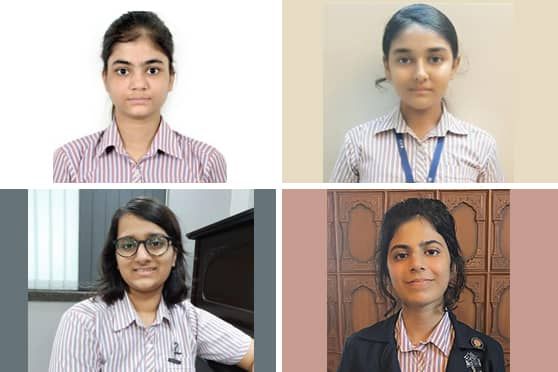Students of Modern High School for Girls attend two-day workshop on financial literacy


Banking has come a long way from physical transactions to digital payments. Modern High School for Girls, Kolkata, conducted a virtual workshop on financial literacy for students of Classes IX and XI to make them financially aware.
The sessions were conducted by Jaya Janardanan, COO, Indostar Capital Finance, on December 7 and 8. The Oxford alumna is a mentor at Aspire For Her Foundation.
“Students, especially those who are not from the Commerce stream, lack basic knowledge of the financial aspects of day-to-day life. Besides, in these times of cybercrime and fraudulent activities, it is important to make them aware of such possibilities and how to conduct safe financial transactions. We aim at creating financially independent, empowered women and hence the need for the session in financial literacy,” said Nandini Dasgupta, senior teacher of Commerce at Modern High School.
“We have many working women nowadays, but their salaries, tax returns, and investment decisions are controlled by the male members of the family. We aim to break this norm. Our follow-up sessions will ideally deal with taxation and investment,” Dasgupta said.
The workshop tried to familiarise students with the basics of banking. Different kinds of banks, types of bank accounts, decoding a banknote, cheque, ATM (automatic teller machine) and bank statements were part of the module. Since the world is progressing towards digital transactions, a discussion on online transactions and cybersecurity was an inevitable part of the workshop.
More than 300 students attended the interactive sessions, which not only helped them understand concepts but also cleared doubts about debit and credit, digital transactions, savings and more.

Financial literacy is important because we need to know how to manage our finances. It also makes us aware of the various types of cyber-crimes such as phishing, pharming, ransomware, and password attacks and how to avert them. To safeguard ourselves from fraud, we should never disclose our password or write it down anywhere, make it tough to crack, and avoid using our birthday as password. We should never give out our CVV or PIN to anyone and should always handle them with caution. Spam e-mails and phone calls should not be responded to or paid attention to. If our debit or credit card is lost, we should promptly block it rather than waste time looking for it. I learned about various aspects of finance, including different types of banks and accounts, how to write a cheque and prevent it from getting bounced, how to handle debit and credit cards, and online payment methods.
Purvi Sonthalia, Class IX
It is very important to have working knowledge of payments and finance. I feel that practical knowledge will serve us better than simply learning abstract concepts from books for an examination. This session on financial literacy was very informative and I truly learned a lot. I got to know about different modes of online payment, their limits, their differences and which mode (IMPS, RTGS and NEFT) should be used in a particular circumstance. none of us can see or fully comprehend the complexity of what is happening behind the scene once we confirm our payment on online portals. The part on online payments and how the account tracing system works was very informative.
--- Shrinjana Ghosh, Class XI, Science
Most of us do not know the basics of banking. Some of the jargon from parents seems pretty intimidating. We need to be aware of the importance of controlled spending and secure saving for the future. That is the first step of financial literacy for me. It is only a matter of time before we have to step into our parents’ shoes and make our own informed decisions regarding financial investments. The session was thoroughly enjoyable as it went beyond the monotony of textbooks and undertook a practical methodology through the use of slides, graphics and anecdotes to familiarise us with the everyday banking parlance. I emerged more confident at the end of the session because the next time I step into a bank or see my parents investing in the financial market, I would feel more equipped and better informed about it. One of the most crucial aspects of the session was the emphasis laid on ‘financial discipline’ that is a quality for all to imbibe. It leads to smart money management, fruitful future planning and rational investment-making skills.
--- Niharika Dasgupta, Class IX
The workshop took my banking knowledge several steps forward. We were taken through necessary activities such as filling cheques and accessing ATMs. For me, learning about online payments and cybersecurity was extremely beneficial especially since I use transactions a lot. I think that learning about the nuances of this medium will not only allow me to engage in secure financial activity but also help me in case I make an unsafe transaction in the future.
--- Urvi Agarwal, Class XI, Social Science